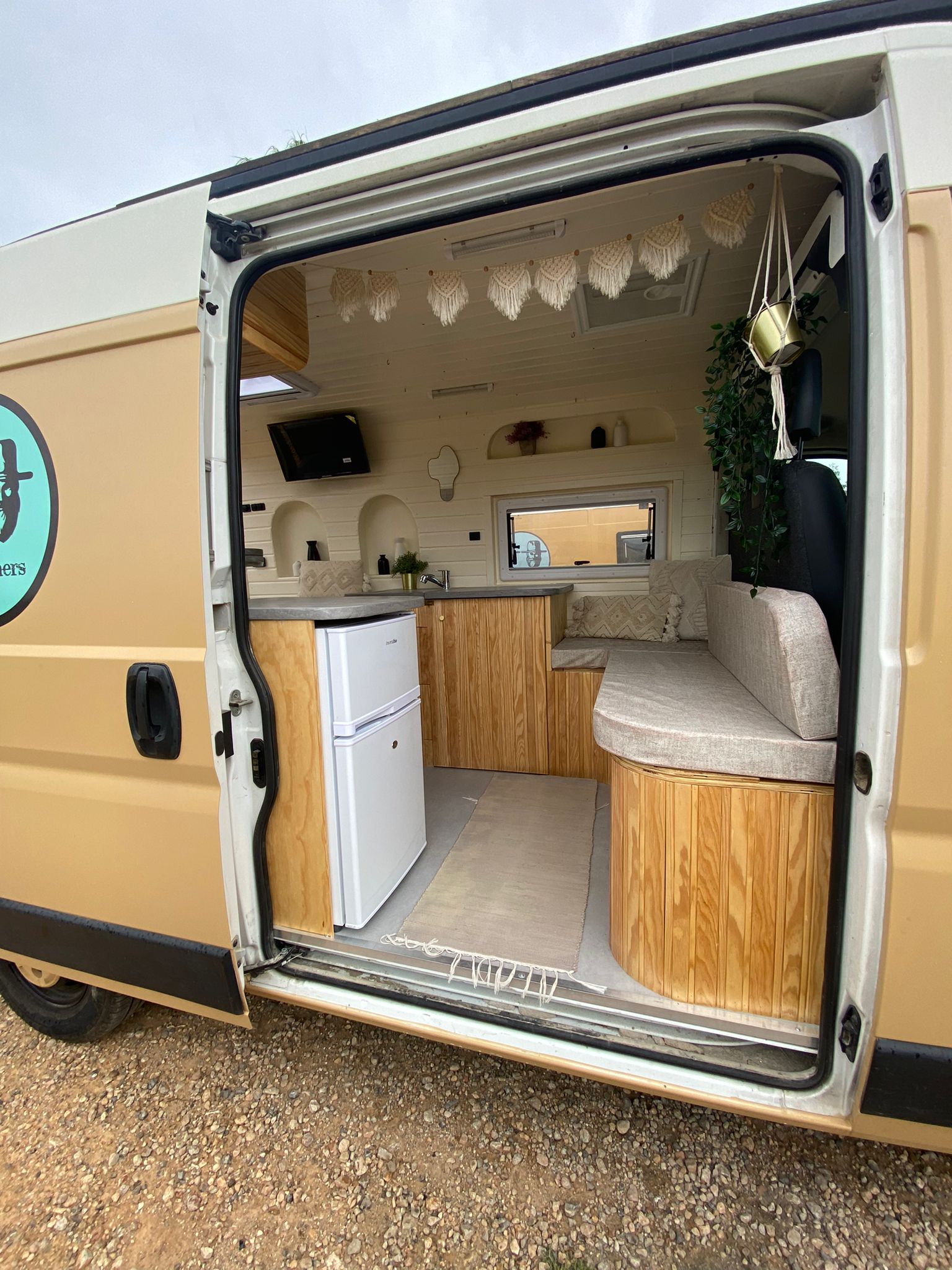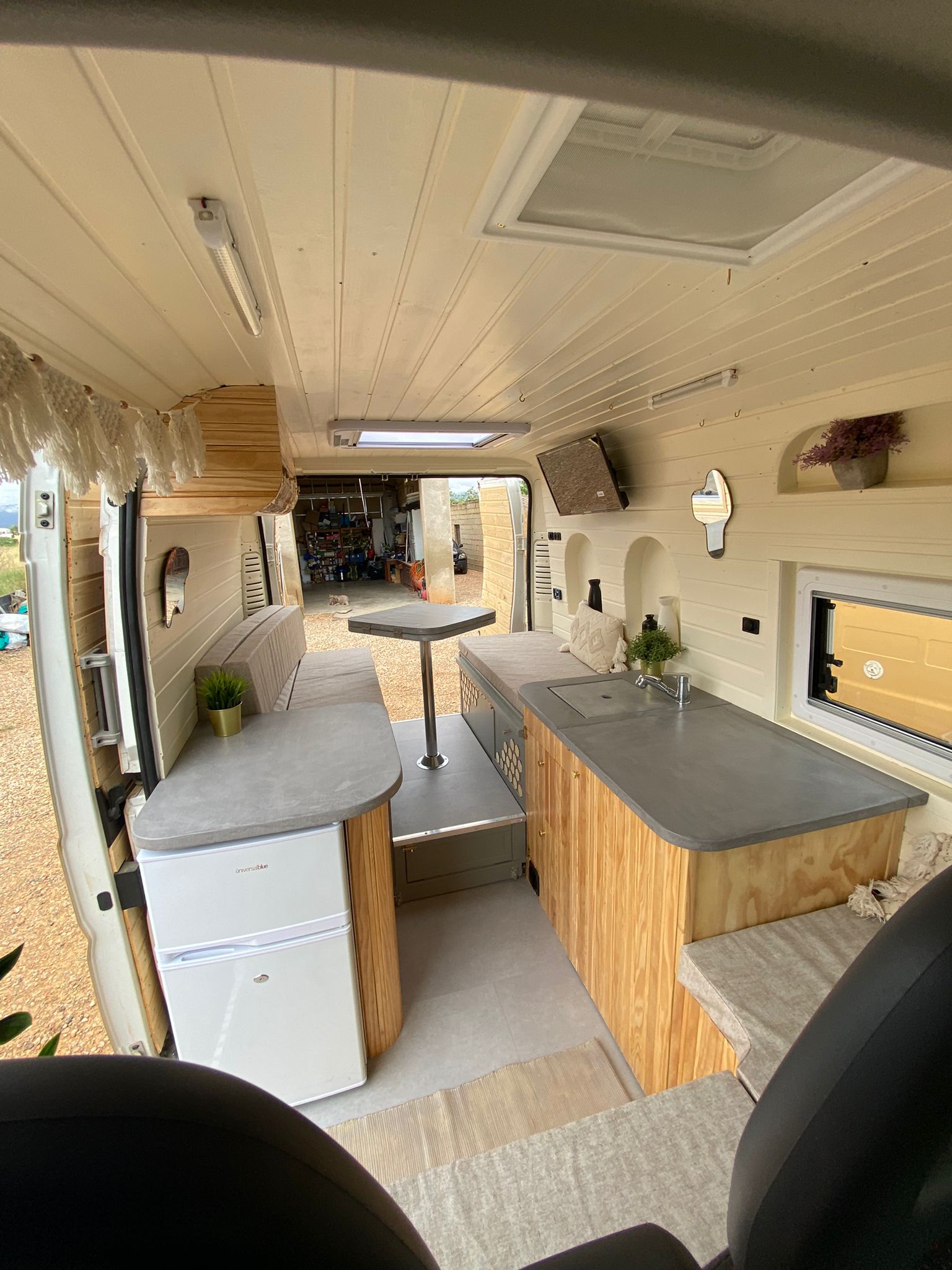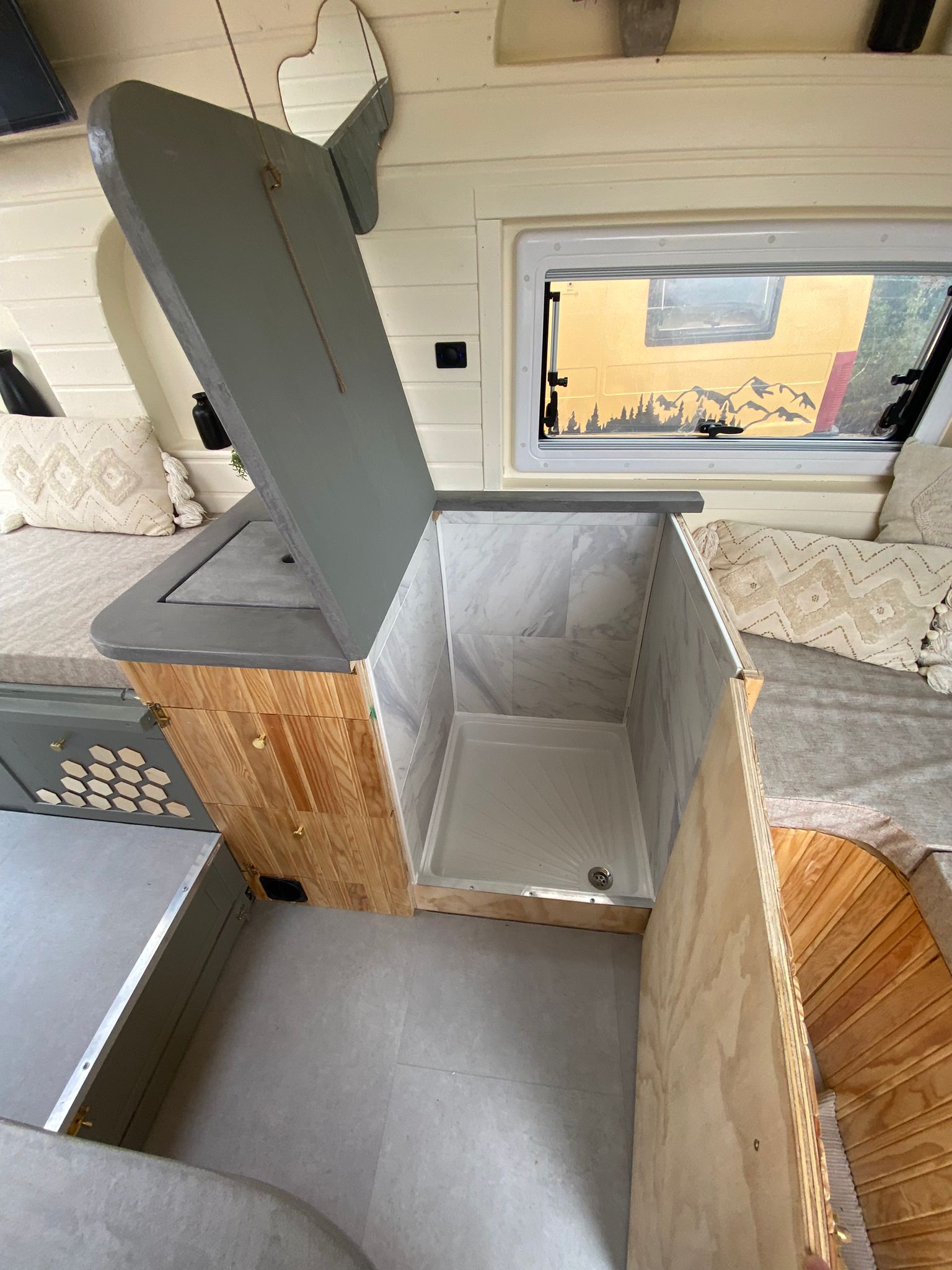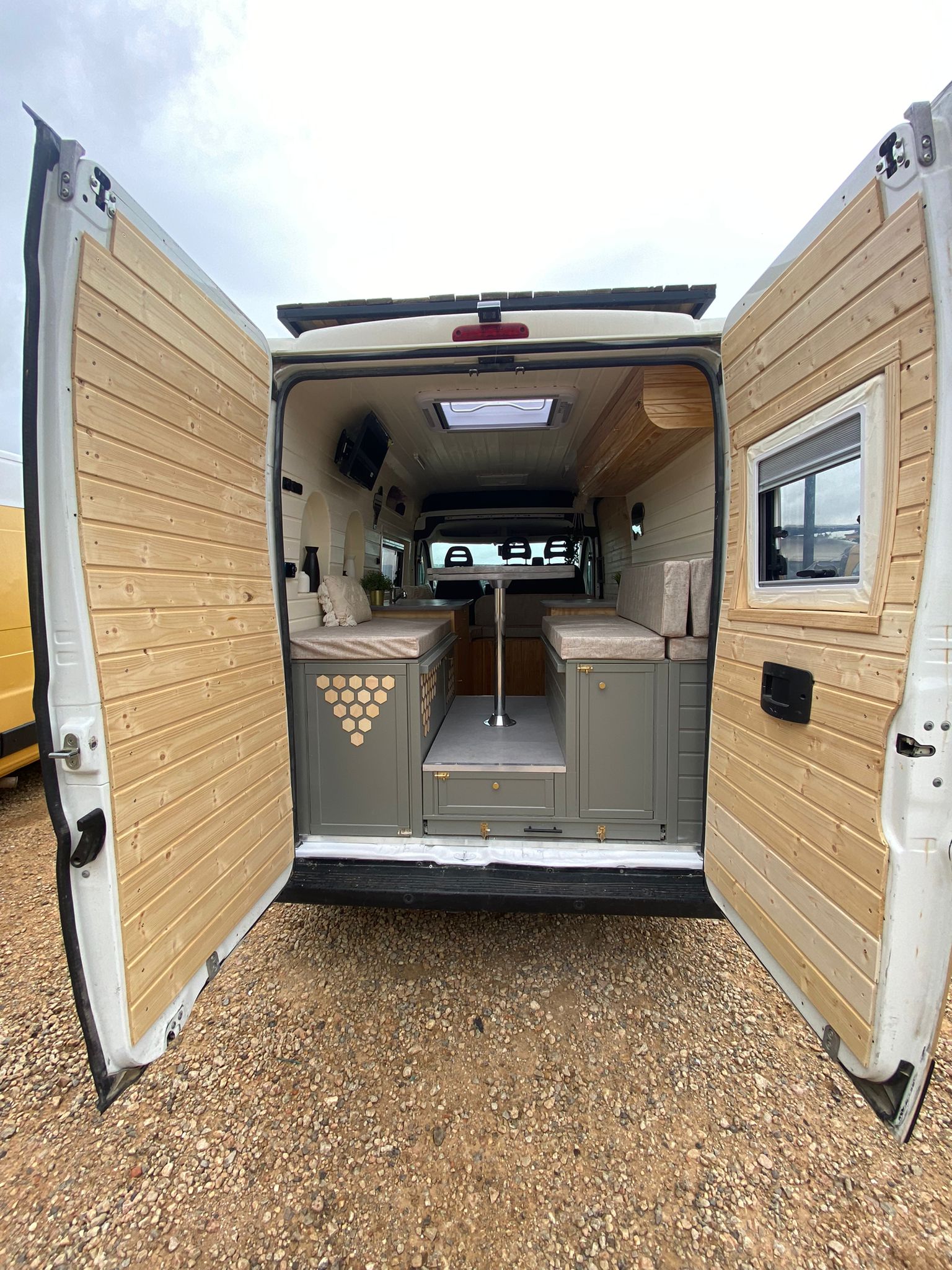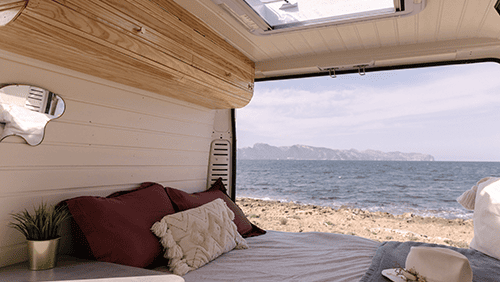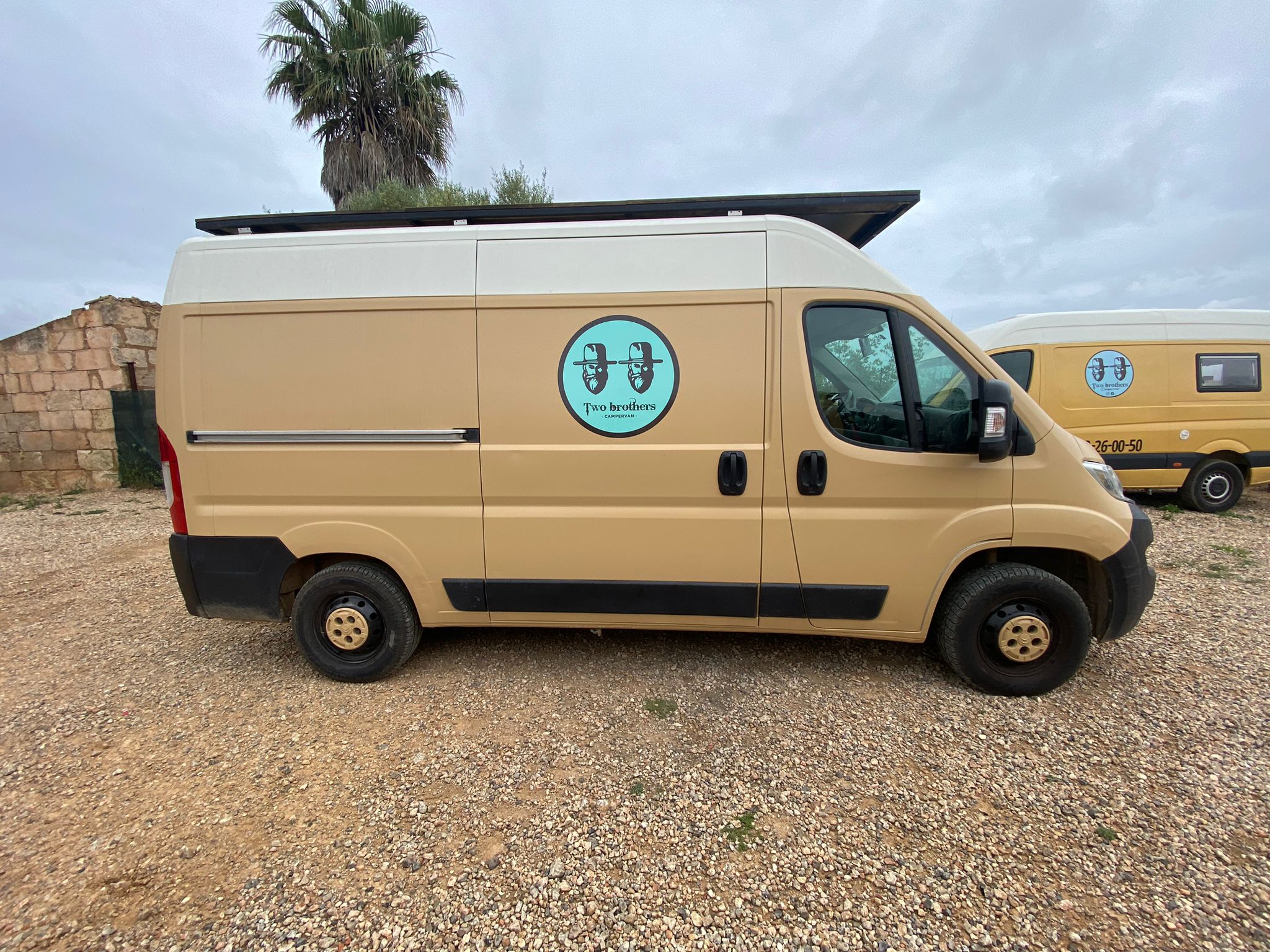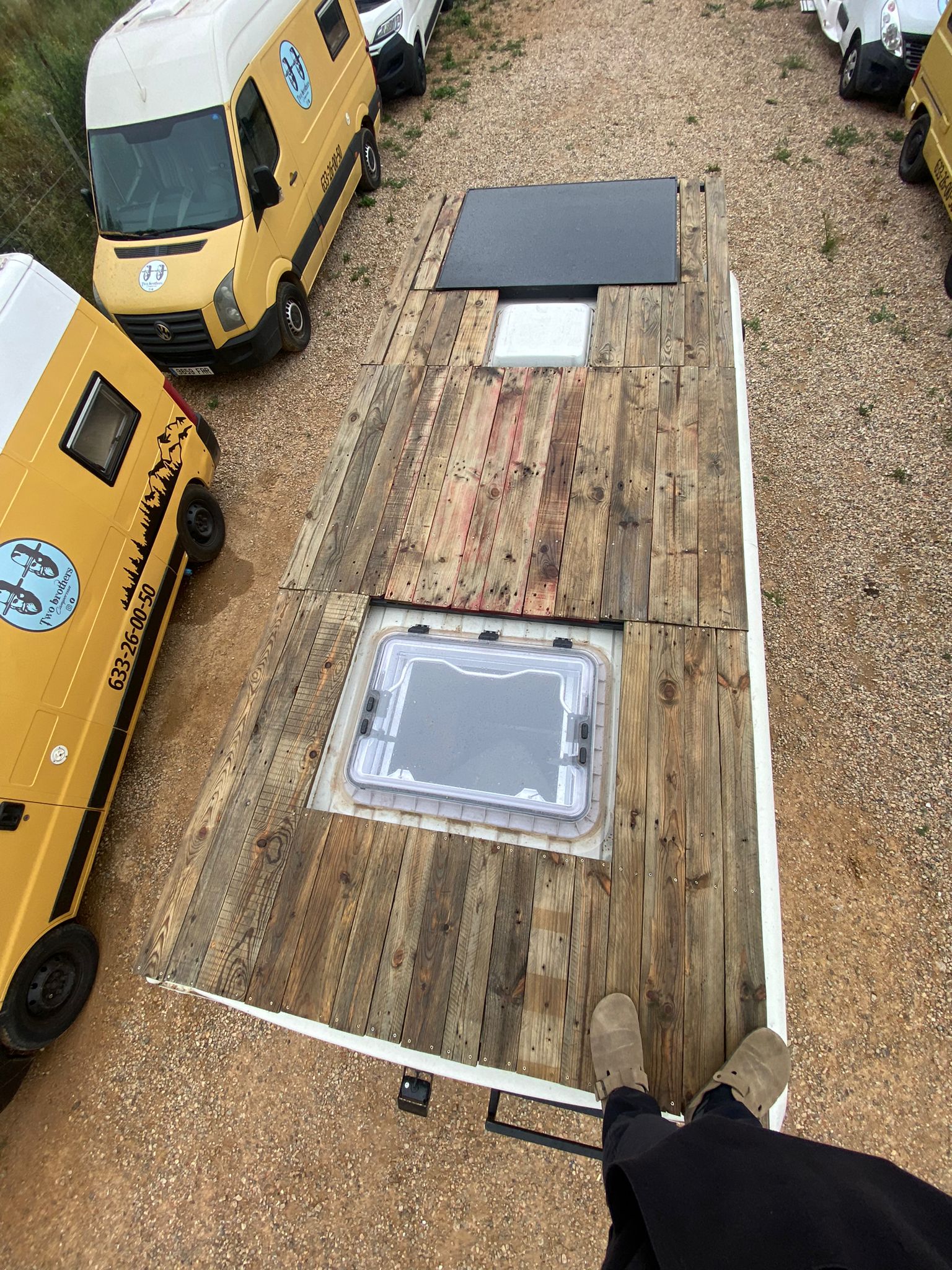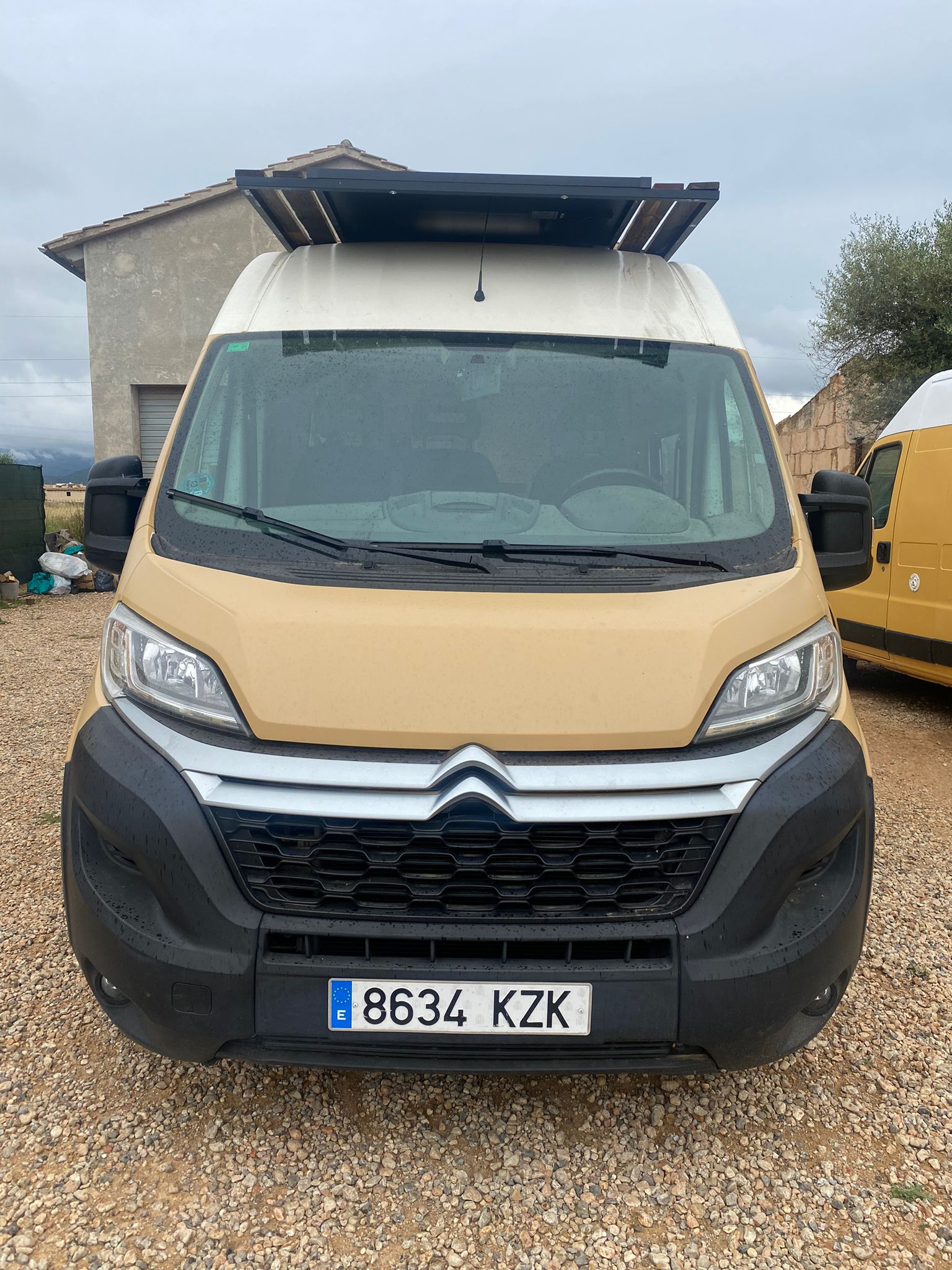Formentera
Our most modern van
The 'Formentera' campervan is the latest addition to our fleet and is a favourite with surfers, road trippers and adventure travellers.. It offers a comfortable space with a double bed, a sofa, a table, a desk working area and indoor shower. Also, roof terrace at the top to watch the sunsets.
Get ready to enjoy freedom!
3 places
belted
3 places
in bed
Carnet de
driving B
Kilometres
unlimited
Masctotas
not accepted
Technical details
- Citroen Jumper
- Height: 2,25m
- Fuel: Diesel
- Type of gearbox: Manual
General characteristics
- 3 cabin seats
- Double bed
- Convertible dining room
- Indoor shower
- Washbasin with extendable faucet for outdoor shower
- Solar panels
- Sofa (convertible into a single bed)
- 85 litre fridge + freezer
- Upper skylight
- Mosquito nets and blinds on all windows
- Enclosed storage space
- USB ports
It also includes...
- Heating
- Bed linen
- Gas cooker
- Italian coffee maker
- Kitchenware
- Outdoor table and chairs
- TV with Firestick
- Rooftop
Optional
You can add these services at the time of booking:
- Paddle board Surt (20€/day)
- Potty portable (wc)
- Bottle of gas (5€/bottle)
- Beach towel (10€/person for the total number of days)
- Hammock: 10€/day (subject to availability)
- Airport transfer service: 40€/trip (subject to availability)
- Check-in/check-out outside check-in/check-out: please consult us
- Child buggy/booster (9€/day - Max. 45€)
- Additional driver (30€ total)
Select your dates and travel with 'Formentera'.
-
Formentera, from 95€ per night
This calendar shows the available days in green. Select your dates on the left (minimum stay: 3 nights)
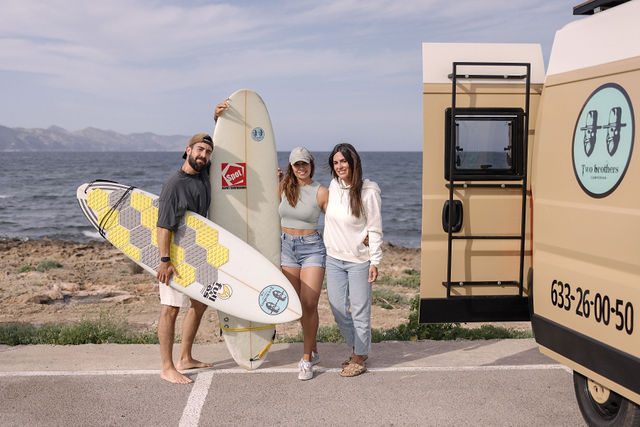
Do you have doubts?
If you don't know which van to choose, or where to go, or if you have any questions about the weather in Mallorca, write to us and we will answer you as soon as possible!

Frequently Asked Questions (Faqs)
How to choose the right camper for me?
Consider your budget, the number of people travelling and the length of your trip. For a short stay, a smaller, more economical van with an outside shower may be suitable (for more information, please see our Dragonera van or book the Formentera); but perhaps for a longer stay you would like to have a full bathroom inside the van. In the latter case, we recommend our van Roqueta or the camper Sa Calabra.
Is it comfortable to travel in a camper van?
Travelling by camper van can provide a very comfortable experience. However, comfort is a subjective term and it is therefore essential that you review everything included in your campervan rental. Here are a few things to consider:
Living space: Camper vans often have limited space compared to a house or flat. However, they are cleverly designed to maximise the use of space. They have fold-down beds, storage areas and fold-down tables, allowing for functional space for sleeping, eating and relaxing.
Beds and rest: Camper vans are equipped with beds, either in the form of convertible seats or fold-out beds. Some camper vans offer larger beds and thicker mattresses, which can improve the quality of rest.
Cooking and meals: Camper vans have a basic cooking area that includes a camping gas stove, sink and refrigerator. This allows basic meals to be prepared during the trip. However, be aware that kitchen space may be limited and may require some adaptation compared to a full domestic kitchen.
Toilet and shower: Some camper vans offer a toilet and shower on board, while others have an outside shower only. Those with a built-in toilet and shower are usually larger and can provide greater comfort in terms of personal hygiene during the journey.
Climatic conditions and electricity: The camper vans have ventilation systems to provide comfort in different climatic conditions. In our case they also have solar panels to provide 24h electricity.
Do I need to have previous experience in driving large vehicles to rent a camper van?
You don't necessarily need to have previous experience in driving large vehicles to rent a camper van. However, it is important to keep in mind that camper vans can be larger and different from the more common personal vehicles, so it is advisable to be prepared and take some precautions. Here are some tips for driving a camper van without previous experience in large vehicles:
Familiarise yourself with the vehicle: Before starting your journey, take some time to familiarise yourself with the camper van. Adjust the mirrors, get to know the dimensions of the vehicle and familiarise yourself with the specific functions and controls.
Practice in a safe area: If you feel unsure or uncomfortable at first, consider practising in a safe and large area, such as an empty car park or an open field, to familiarise yourself with the dimensions and manoeuvrability of the vehicle.
Drive with caution: Drive with caution and maintain a safe and appropriate speed. Be aware that camper vans may have different acceleration and braking capabilities than a smaller vehicle.
Be aware of size and height: Pay attention to the height of the vehicle when driving under bridges, low branches or any other obstruction that may interfere with the height of the van.
Consider braking distance: Due to their greater weight and size, camper vans may have a longer braking distance. Be sure to keep a safe distance from vehicles in front of you and anticipate stops and decelerations well in advance.
Parking and manoeuvring: When parking or manoeuvring, consider the size of the vehicle and the need for additional space. Look for larger parking areas and consider having a co-driver to help with manoeuvring.
What type of fuel do camper vans use?
The type of fuel used by camper vans can vary depending on the specific make and model of vehicle. In general, there are two common types of fuel used in camper vans:
Diesel: Many camper vans are equipped with diesel engines, which means that they use diesel as a fuel. Diesel tends to be more fuel efficient and can be a popular choice for those planning longer journeys.
Petrol: Some camper vans are also designed with petrol engines, which means that they use unleaded petrol as fuel. Petrol can be more readily available in many areas and may be preferable for those who have no experience with diesel vehicles.
It is important to check the vehicle specifications to determine what type of fuel the specific camper van you are considering uses. This will help you to fuel properly during your trip and avoid problems related to incorrect fuel usage. In addition, you may want to consider fuel economy and fuel cost when choosing a camper van. Some diesel camper vans may offer better fuel efficiency compared to petrol vans, but the cost of diesel may vary depending on geographical location. It is useful to consider these factors when planning your trip and budget.

